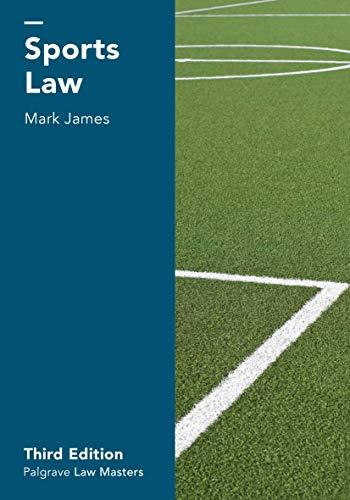Question
In his treatise Of Property (1689), English philosopher John Locke asserted though the Earth and all inferior creatures be common to all Men, yet every
In his treatise "Of Property" (1689), English philosopher John Locke asserted "though the Earth and all inferior creatures be common to all Men, yet every man has a property in his own person. Thus nobody has any right to but himself." This is made particularly evident in legal cases that have sought to answer complex question such as who owns our bio-specimens, who owns our genome, and who controls commercial products derived from our biomedical research contributions. SELECT A LEGAL CASE that involves arguments pertaining to ownership of of bio- specimens and/or genetic material. use a legal case to write an analytical and engaged essay. The primary questions you will be working out through the paper are:
1) Do we have recognizable property rights in our own bodies? 2) Must we rely solely on privacy rights when it comes to issues of protection of bodily integrity?
3) What are some of the ethical issues that are being raised by your chosen case?
4) What are some of the key legal issues that are being raised by your chosen case? free to select any relevant case which interests with the EXCEPTION OF THE MOORE CASE, OR THE CASE OF HENRIETTA LACKS.
Step by Step Solution
There are 3 Steps involved in it
Step: 1

Get Instant Access to Expert-Tailored Solutions
See step-by-step solutions with expert insights and AI powered tools for academic success
Step: 2

Step: 3

Ace Your Homework with AI
Get the answers you need in no time with our AI-driven, step-by-step assistance
Get Started


